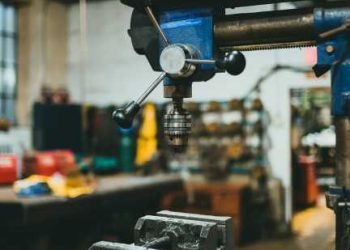Artificial intelligence (AI) has become increasingly prevalent in the manufacturing industry in recent years, revolutionizing various aspects of the production process. AI technology offers a wide range of benefits, including increased efficiency, quality, and flexibility. In this blog post, we will explore the role of artificial intelligence in manufacturing and discuss how it is transforming the industry.
One of the primary ways in which AI is revolutionizing manufacturing is through predictive maintenance. By using AI algorithms to analyze historical data and predict equipment failures before they occur, manufacturers can reduce downtime and increase productivity. Predictive maintenance allows manufacturers to schedule repairs and replace faulty equipment proactively, rather than waiting for costly breakdowns to occur.
AI is also transforming production processes through the use of automated quality control systems. By using machine learning algorithms to analyze images, videos, and sensor data, manufacturers can quickly detect defects and anomalies in their products. This allows them to identify and address quality issues before they reach the end consumer, resulting in higher customer satisfaction and reduced waste.
In addition to predictive maintenance and quality control, AI is also being used to optimize production scheduling and logistics. By using advanced algorithms to analyze production data in real-time, manufacturers can optimize their production schedules to minimize downtime and maximize efficiency. AI can also be used to optimize inventory management, ensuring that manufacturers have the right supplies on hand at all times.
Another important role of artificial intelligence in manufacturing is in the design and optimization of products. AI algorithms can analyze large amounts of data to identify trends and patterns, helping manufacturers design products that meet the needs of their customers. Manufacturers can also use AI to simulate different design scenarios and optimize product performance, resulting in higher-quality products and faster time-to-market.
AI technology is also transforming the field of robotics in manufacturing. By using AI algorithms to control robots and other automated systems, manufacturers can increase the flexibility and efficiency of their production processes. AI-powered robots can perform complex tasks with greater accuracy and speed than human workers, resulting in higher productivity and lower costs.
Overall, the role of artificial intelligence in manufacturing is to improve efficiency, quality, and flexibility across the production process. By using AI algorithms to analyze data, optimize production schedules, and control automated systems, manufacturers can reduce downtime, increase productivity, and deliver higher-quality products to their customers.
However, despite the many benefits of AI in manufacturing, there are also challenges and concerns that come with its implementation. One of the main concerns is the potential for job displacement as more tasks become automated. While AI technology can increase productivity and efficiency, it also has the potential to replace human workers in some industries.
Another concern is the need for data security and privacy in AI-powered systems. Manufacturers must ensure that their data is protected from cyber threats and that customer information is kept confidential. Additionally, there is a need for regulatory frameworks to govern the use of AI technology in manufacturing, ensuring that it is used ethically and responsibly.
In conclusion, the role of artificial intelligence in manufacturing is transformative, revolutionizing the industry in numerous ways. From predictive maintenance and quality control to production scheduling and robotic automation, AI is reshaping the way manufacturers operate. While there are challenges and concerns that come with the implementation of AI technology, the benefits far outweigh the risks. By embracing AI technology, manufacturers can improve their efficiency, quality, and flexibility, ensuring their competitiveness in a rapidly changing global market.












